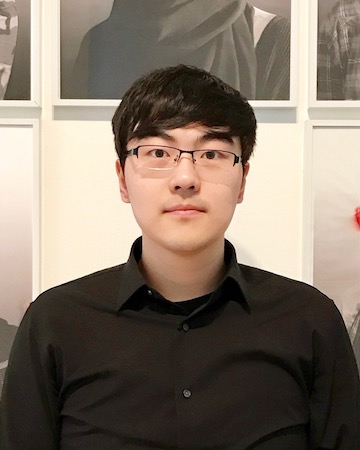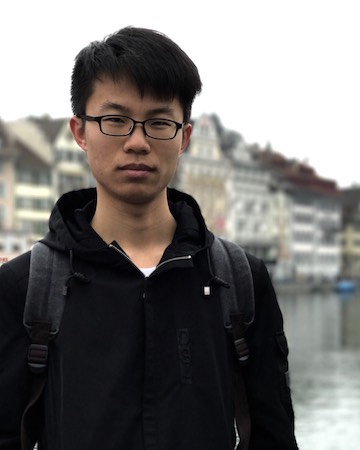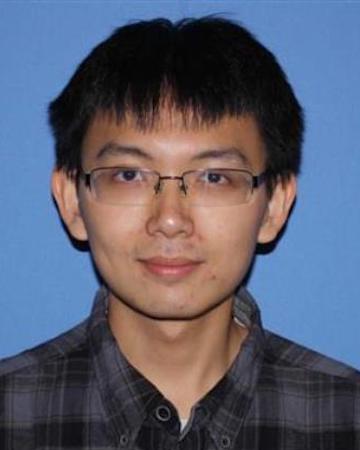SPRING 2017 / CSE 473: Introduction to Artificial Intelligence
Basic Information
Course Staff:

Dieter Fox Course Instructor Office Hours: Wednesday 2:30-3:30pm, CSE 586 |

Nicholas Ruhland Teaching Assistant Office Hours: Tuesday 10:30-11:30am, CSE 021 |

Xiaoyi Zhang Teaching Assistant Office Hours: Wednesday 10:30-11:30am, CSE 007 |

Bruno Castro-Karney Teaching Assistant Office Hours: Monday 12:30-1:30pm, CSE 023 |

Ziyao Huang Teaching Assistant Office Hours: Thursday 10:30-11:30am, CSE 021 |

Yifei Song Teaching Assistant Office Hours: Tuesday 4-5pm, CSE 021 |
Contact:
Our primary method of communication will be the Piazza site for this course: https://piazza.com/washington/spring2017/cse473/.
If you truly wish to use old-fashioned email, you may email all instructors at cse473-instr [at] cs.washington.edu.
Class Times & Locations:
Monday, Wednesday, Friday 13:30-14:20 in EEB 125
Textbook:
Stuart Russell & Peter Norvig, Artificial Intelligence: A Modern Approach, Third Edition (2009)
Topics:
Search (uninformed, heuristic), Constraint Satisfaction Problems, Adversarial Search, Markov Decision Processes, Reinforcement Learning, Probabilities, Hidden Markov Models, Particle Filters, Bayesian Networks, Applications in Robotics
Grading and Late Policy:
Your grade will be 50% programming assignments, 15% midterm, 30% final exam, 5% class participation.
Each student has four penalty-free late days for the whole quarter. All other late submissions will be penalized 10% of the maximum grade per day.
Assignments will be done individually unless otherwise specified. You may discuss the subject matter with other students in the class, but all final answers must be your own work. You are expected to maintain the utmost level of academic integrity in the course.
Pac-Man:
The programming projects in this course are based on those from http://ai.berkeley.edu/project_overview.html. This link is provided for reference only as our projects may differ.
Academic Honesty
It is encouraged that you discuss your ideas with each other and consult online sources to better understand the material. However, your code must be written entirely by yourself. As a rule, you should never look at or run anyone else's code for the assignment, whether the code was written by someone currently in the class, or someone who took it previously, even at another university. Reading pseudocode for generic algorithms (like alpha-beta pruning or A* search) is perfectly OK. If you use a source very closely, for example, converting a pseudocode implementation of A* to python, academic integrity demands that you cite the source (in a comment). You will not be penalized for this; on the contrary, the citation may help us to understand why your implementation is so similar to someone else's, in case they use and cite the same source. We do compare everyone's projects to each other and to past submissions to detect logical redundancy. When two assignments are too similar to have occurred by chance, we have to look into whether something improper occurred. These investigations are not fun for anyone involved. If you have questions, please ask!
Overflow Add Request
If you are not yet enrolled in the course, and wish to be, please send the following information to cse473-instr [at] cs.washington.edu
- First and last name
- UW netid
- UW student id number
- Major
- Projected year and quarter of graduation
- Any other information you think is relevant
This does not guarantee enrollment, but we will do our best.
Anonymous Feedback
You may submit anonymous feedback at any time on any aspect of the course here
Homework Assignments
Project 0: Tutorial (Not Graded)
Project 1: Search in Pacman (Due Monday, April 17th before midnight)
Project 2: Multi-Agent Pacman (Due Friday, April 28th before midnight)
Project 3: Reinforcement Learning (Due Monday, May 15th before midnight)
Project 4: Ghostbusters (Due Friday, May 26th before midnight)
Homework 5: Bayes Nets (Due Friday, June 2nd either in class or Catalyst dropbox before midnight)
- No late days on Homework 5! Late submissions will not be accepted.
- HW 5 solution is now posted. If you have any questions about HW 5, feel free to make a post on Piazza.
Exams
Midterm (May 3)
Midterm will be held on 5/3 (Wed) during lecture time. Closed book, no calculators, no cheatsheet.
Practice Exams:
Final Exam (Monday June 5, 2:30-4:20pm)
Final will be held on 6/5 (Monday of finals week), EEB 125. Closed book, no calculators, no cheatsheet. The final will be cumulative with an emphasis on the post-midterm material.
Practice Exams:
- 15sp(solutions) Errata - 5b: V2(C)=235/4, not 47. 6a: Q((1,1),N)=4, not 2.
- 14au(solutions)
-
Berkeley 188: 14sp
(solutions) (Ignore: 2d, 2e, 4e, 4f, 4g, 5, 7biii, 9)
- Berkeley 188: 13au (solutions) (Ignore: 5c, 5d, 8, 9c, 9d)